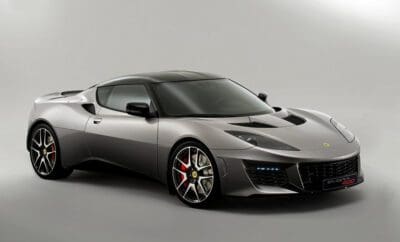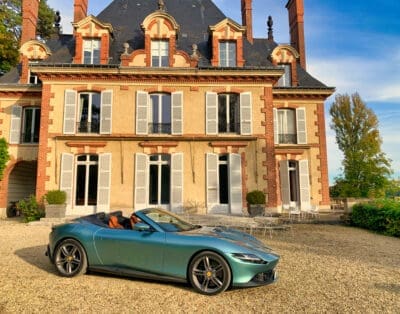New Lotus Elise Race 250 Track Performer
The latest race car from Lotus, the new Elise Race 250 distils the famous company’s engineering expertise into one hardcore, track-orientated package.
Eligible for many race series around the world, this sensational new Elise has been developed to meet the high demands of the track, with a raft of performance-orientated features as standard. Packing a supercharged, 1.8-litre 4-cylinder engine with a 6 speed manual gearbox, the Elise Race 250 boasts 243 hp (246 PS) at 7200 rpm and an impressive 250 Nm of torque between 3500 rpm and 5500 rpm.
Delivering a level of ability you’d expect from one of the world’s most famous racing marques, every aspect of the Lotus Elise Race 250 has been optimised to help slash lap times. This covers track-oriented features including Nitron adjustable dampers, uprated brake pads, FIA approved carbon fibre race seat with six-point racing harness, a removable steering wheel and a polycarbonate rear windscreen.
The Lotus Elise Race 250 also features a full aero package, including front splitter, rear diffuser, floor extensions and a rear wing. As a result, the car’s design generates substantial downforce, equal to 66 kg at 100 mph and 155 kg at maximum speed of 154 mph (248 km/h).
As befitting a race car, the cabin of the Elise Race 250 is fitted with an A-Frame harness bar and an FIA compliant front roll-cage section, fire extinguisher, battery isolator and front and rear towing eyes. The front headlamps are replaced with lightweight composite blanking panels.
Jean-Marc Gales, CEO of Group Lotus plc, commented, “Lotus was established to build race cars and with 68 years’ experience, no one knows more about extracting the best performance possible. The Elise Race 250 is the fastest, most focused Elise we’ve ever produced and, judging by what it’s capable of on track, it looks set to become a favourite with our racers around the world.”
The new Elise Race 250 benefits from the continuous design philosophy of Lotus and its perpetual quest to evolve all constituent parts, lightening and optimising them.
At the core of the new car lies the company’s famous Lotus’ aluminium vehicle chassis technology. Employing strong and stiff lightweight extrusions joined by epoxy adhesive, it’s both immensely strong and torsionally stiff yet, the chassis for the Elise Race 250 tips the scales at just 68 kgs.
Specifically developed by Lotus’ famous Motorsport division the car has benefited through the company’s ‘Lightweight Laboratory’, and includes as standard, a Lithium Ion battery saving 10 kg compared to a standard battery, carbon fibre race seats (6 kg lighter than the equivalent composite seats) and ultra-lightweight forged alloy wheels. Those wanting to cut weight still further, can opt for the Carbon Aero Pack which replaces the standard front splitter, rear wing, rear diffuser and side floor-extensions with lightweight carbon components and reduces mass by a further 10 kg. With these lightweight options, the Elise Race 250 weighs less than 900 kg (dry).
With the new car lapping the company’s Hethel test track in 1 minute 33.5 seconds, the Elise Race 250 is 0.5 seconds quicker than the previous Elise Cup 220 R and represents the fastest recorded lap time for a Lotus developed race-variant of the Elise.
Developed through Lotus’ extensive motorsport experience, the Elise Race 250 features an adjustable front anti-roll bar, Nitron one-way adjustable dampers and Eibach coaxial coil springs and double wishbone suspension providing optimum body and roll control, but not at the expense of composure or turn in and without sacrificing high-speed stability. AP Racing twin-piston front calipers, and Brembo single-piston rear calipers work in conjunction with the ABS system with ultra-lightweight forged alloy wheels (16-inch, front and 17-inch rear) with Yokohama AO48 tyres (195/50/16 on the front and 225/45/17 on the rear).
The arrival the new Elise Race 250 coincides with the 50th celebrations for the founding of the famous factory in Hethel, Norfolk, when in 1966, founder Colin Chapman moved Lotus to the purpose-built facility. Today, all Lotus cars are developed on the same test track responsible for the company’s famous Grand Prix racers. As the spiritual home of Team Lotus, its heritage includes seven World Constructors’ Championship titles and six World Drivers’ Championship.








